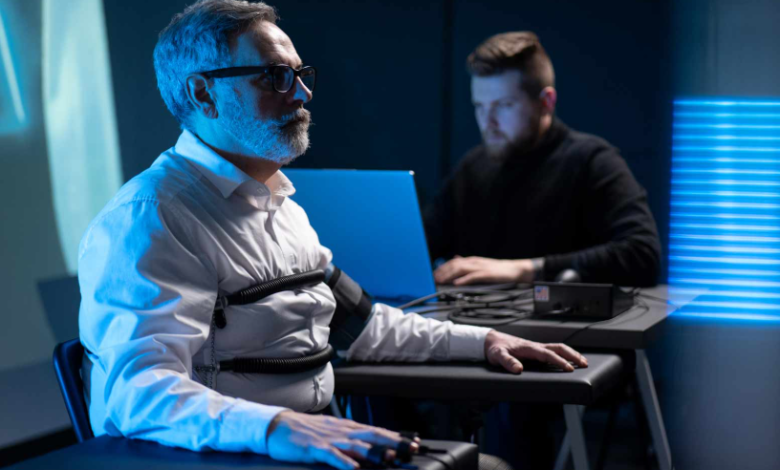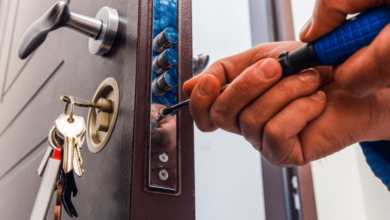Lie Detection in Practice: Understanding Polygraph Tests in Maryland

Polygraph tests, more commonly known as lie detector tests, have long been associated with uncovering deception in criminal investigations, employee screenings, and internal security inquiries. These tests measure physiological responses—such as heart rate, blood pressure, respiratory rate, and skin conductivity—while a person answers a series of questions. In theory, if someone is lying, their body exhibits stress responses that can be recorded and interpreted. In the state of Maryland, polygraph testing is used in a variety of official capacities, but it also faces legal and ethical scrutiny. While some view the test as a valuable investigative tool, others challenge its reliability and the fairness of its application. Understanding how lie detector tests are used, regulated, and perceived in Maryland is essential for anyone encountering this technology in legal, employment, or investigative contexts.
How Polygraph Tests Work
The polygraph test is based on the idea that deception triggers involuntary bodily reactions. During the test, a subject is connected to monitoring devices that track physiological indicators. A trained polygraph examiner asks a series of baseline and relevant questions to establish normal patterns and detect potential signs of deception. The data is then interpreted, often with the help of software, though much of the analysis still depends on the examiner’s experience and subjective judgment. In Maryland, polygraph tests must be conducted by licensed professionals, and the process must adhere to strict procedural guidelines to maintain ethical standards. While the test does not directly detect lies, it seeks to identify stress responses that may indicate dishonesty, although various factors such as anxiety, medical conditions, or fear can skew results. As such, while many consider the polygraph a useful tool, it is far from infallible.
Legal Use of Polygraph Tests in Maryland
The state of Maryland has specific laws regulating the use of polygraph tests, particularly in the areas of employment and criminal justice. Under the federal Employee Polygraph Protection Act (EPPA), most private employers are prohibited from requiring polygraph tests as a condition of employment, with limited exceptions. However, certain employers—such as security firms or government contractors—may be allowed to use polygraphs in specific situations. In Maryland, law enforcement agencies frequently use polygraph exams during the hiring process for officers and correctional staff, and sometimes during internal investigations or criminal inquiries. When it comes to legal proceedings, polygraph results are generally inadmissible in court unless both parties agree to allow them. Courts in Maryland typically treat the polygraph as a supplemental investigative tool rather than conclusive evidence, acknowledging both its potential value and its limitations.
See also: Centre For Orthopedic Surgery And Its Impact On Modern Healthcare
Reliability and Controversy
Polygraph testing has long been the subject of debate, primarily due to concerns about its accuracy. Advocates argue that modern polygraph tests, when conducted by skilled examiners, can detect deception with reasonable reliability—often cited at 80 to 90 percent under optimal conditions. However, critics point out that polygraph results are highly sensitive to individual differences, mental states, and even examiner bias. A truthful person experiencing anxiety may appear deceptive, while a calm liar may escape detection. These issues have led many in the scientific and legal communities to caution against overreliance on polygraph testing. In Maryland, such concerns have informed cautious legal approaches, including the general inadmissibility of test results in court. Nevertheless, polygraph tests continue to play a role in pre-employment screening for public safety roles, where the results are used alongside interviews, background checks, and psychological evaluations to build a fuller picture of a candidate’s trustworthiness.
Location in Maryland
Towson – 100 West Rd, 3rd Floor, Towson, MD 21204
Current Trends and Future Perspectives in Maryland
Despite ongoing controversy, polygraph testing remains widely used in Maryland, particularly by state and local government agencies. Its role is most pronounced in law enforcement, where it serves as a tool to screen applicants and assess truthfulness in sensitive investigations. However, as technology evolves, new methods of lie detection are being explored, including voice stress analysis, eye movement tracking, and even brainwave monitoring. These emerging technologies are still in developmental stages and face similar concerns about reliability and ethics. For now, the polygraph remains the most commonly used physiological lie detection method. Looking ahead, Maryland may revise its stance on lie detection technologies as scientific understanding improves and public attitudes evolve.
In summary, while polygraph tests in Maryland are not foolproof and cannot be used as sole evidence in court, they remain a significant part of investigative and hiring processes, especially in law enforcement. Their legal use is carefully regulated, and while they offer potential insights into truthfulness, they must always be interpreted with caution and in conjunction with other investigative tools.






